
Ignaz Jastrow (13 September 1856, Nakel - 2 May 1937, Berlin) was a German economist and historian.

Ignaz Jastrow (13 September 1856, Nakel - 2 May 1937, Berlin) was a German economist and historian.
He was educated at the universities of Breslau, Berlin, and Göttingen. He became a university docent at Berlin in 1885 and was Leopold von Ranke's assistant in historical work. In 1904 he pursued industrial investigations in the United States, and in 1905 became professor of Administrative Science at Berlin. One daughter, Elisabeth Jastrow, was a classical archaeologist; the other Beate Jastrow Hahn, was an accomplished horticulturalist and author of 5 books. His granddaughter, Cornelia Oberlander was a highly respected landscape architect.
He edited the Jahresberichte der Geschichtswissenschaft (1881–94); Sociale Praxis (1895–97); Das Gewerbegericht (1896 et seq.); and Der Arbeitsmarkt (1897 et seq.).

Johann Augustus Eberhard was a German theologian and "popular philosopher".

Karl Wilhelm FriedrichSchlegel was a German poet, literary critic, philosopher, philologist, and Indologist. With his older brother, August Wilhelm Schlegel, he was one of the main figures of Jena Romanticism.
Ernst Kuno Berthold Fischer was a German philosopher, a historian of philosophy and a critic.

Christoph Martin Wieland was a German poet and writer. He is best-remembered for having written the first Bildungsroman, as well as the epic Oberon, which formed the basis for Carl Maria von Weber's opera of the same name. His thought was representative of the cosmopolitanism of the German Enlightenment, exemplified in his remark: "Only a true cosmopolitan can be a good citizen."

Christoph Wilhelm Friedrich Hufeland was a German physician, naturopath and writer. He is famous as the most eminent practical physician of his time in Germany and as the author of numerous works displaying extensive reading and a cultivated critical faculty.
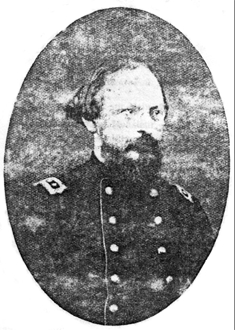
Friedrich Wilhelm Rüstow was a Prussian-born Swiss soldier and military writer.
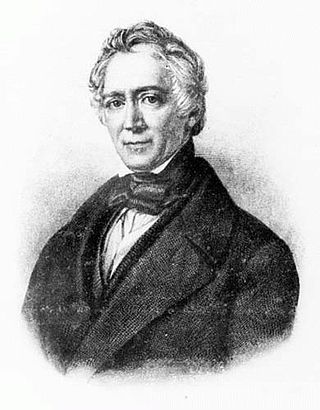
Friedrich Ludwig Georg von Raumer was a German historian. He was the first scientific historian to popularise history in German. He travelled extensively and served in German legislative bodies.
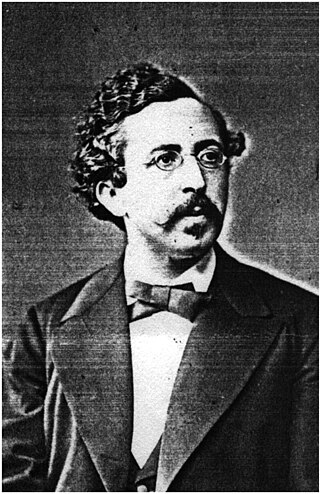
Hermann Cohen was a German Jewish philosopher, one of the founders of the Marburg school of neo-Kantianism, and he is often held to be "probably the most important Jewish philosopher of the nineteenth century".

August Kopisch was a German poet and painter.

Karl Philipp Moritz was a German author, editor and essayist of the Sturm und Drang, late Enlightenment, and classicist periods, influencing early German Romanticism as well. He led a life as a hatter's apprentice, teacher, journalist, literary critic, professor of art and linguistics, and member of both of Berlin's academies.

Heinrich Karl Wilhelm Berghaus was a German geographer and cartographer who conducted trigonometric surveys in Prussia and taught geodesy at the Bauakademie in Berlin. He taught cartography and produced a pioneering and influential thematic atlas which provided maps of flora, fauna, climate, geology, diseases and a range of other information. He was a friend of Alexander von Humboldt and produced some of the maps used in his publications. A nephew Hermann Berghaus also worked in cartography.

Georg Friedrich Puchta was an important German Legal scholar.

Isaak Marcus (Markus) Jost was a Jewish historical writer.

Heymann or Hermann Steinthal was a German philologist and philosopher.
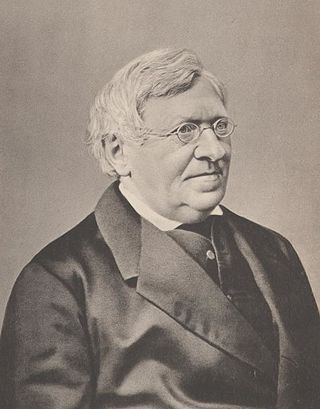
Johann Baptist Alzog was a German theologian and Catholic church historian.
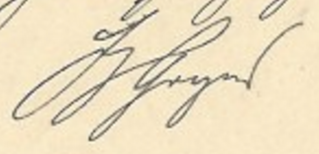
Ludwig Geiger was a German author and historian.
Paulus Stephanus Cassel, born Selig Cassel, was a German Jewish convert to Christianity, writer, orator, and missionary to Jews.
Karl von Lützow was a German art historian and critic.

Max Halbe was a German dramatist and main exponent of Naturalism.